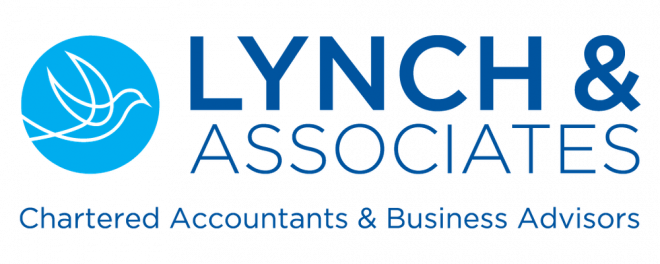Call us on 09 366 6005
Updates & Articles
Trusts and information disclosures
Topics
Last year we wrote to you about the new disclosure requirements that apply to Trusts in the filing of income tax returns. There have been changes brought about by the Trusts Act 2019 and changes to Tax Law.
It is now timely that we update our article and if you are Trustee please read it carefully and make sure you are conversant with everything.
Should you have any queries please contact chris@laaca.co.nz
Read the guide below or Download the guide here
Trustees are required to ensure the due and proper administration of trusts for the benefit of beneficiaries. The Trusts Act 2019 introduced a new presumption that trustees will make basic trust information available to every beneficiary. In addition to this, recent changes to tax law have broadened the disclosure requirements that apply between active trusts and Inland Revenue:
- the Trusts Act 2019, which came into full force and effect in January 2021 introduced new presumptions regarding providing basic trust information and further trust information to beneficiaries when requested.
- the Taxation (Income Tax Rate and Other Amendments) Act 2020 introduced new requirements for disclosing information to Inland Revenue. From 1 April 2021, trusts must provide more information regarding trust settlements and distributions.
Information disclosure to beneficiaries
The Trusts Act 2019 introduces a new presumption that trustees will make basic trust information available to every beneficiary and will provide trust information to beneficiaries on request. Basic trust information is:
- the fact that a person is a beneficiary
- the name and contact details for each trustee
- details regarding any change of trustees (as these occur), and
- the beneficiary’s right to request a copy of the terms of the trust or trust information.
At reasonable intervals, trustees are required to consider whether they should be making this information available. We recommend that trustees consider this at least annually.
The Act also recognises that in some situations it may not be advisable to make basic information available. Section 53 of the Act sets out what trustees must consider when deciding whether to provide basic trust information and in response to requests from one or more beneficiaries for trust information. This includes:
- whether the information is confidential, either personally or commercially
- what the settlor intended when creating the trust
- the effect on the parties concerned of providing the information
- whether providing the information will damage family relationships
- the practicalities of giving information to all beneficiaries.
If, as a trustee, you believe that basic trust information should not be provided to one or more beneficiaries. or that a request for trust information should be refused, we recommend that you consult your legal advisor and document the factors which lead you to decide this.
Information disclosures to Inland Revenue
From the 2021-22 income year onward, trustees of complying trusts are required to provide more information in a form prescribed by Inland Revenue on their annual returns. This applies to trustees of all trusts that have assessable income and are required to file a return:
- a statement of financial position setting out the assets, liabilities, and net assets of the trust
- a statement of profit or loss showing income derived, and expenditure incurred
- the nature and amount of any settlement made on the trust during the year
- the details of anyone who is a settlor of the trust
- the amount of any distributions made during the year, and the details of the beneficiary
- who received the distribution
- details of any person who has powers to appoint or remove trustees and beneficiaries or amend the trust deed.
In addition to the disclosures set out above, from 31 March 2022 most trusts will also be required to prepare financial statements. Unless a trust is a non-active complying trust with no income or income of $200 or less in interest, it will have to prepare financial statements. While these financial statements are not filed with the IR6 income tax return, they must be available if Inland Revenue requests to see them.
Inland Revenue can request the above additional information for periods up to 8 years prior to the 2021-2022 income year. This will most likely be invoked where IR identify areas of concern when reviewing the 2021-22 or later disclosures.
Eligible Trusts – reduced information disclosure requirements *
Certain trusts that derive less than $1,000 income and have no deductions (see also below) have reduced information requirements and are able to only provide the following information for each settlor who makes a settlement on the trust in the income year:
- name
- date of birth
- jurisdiction of tax residence
- tax file number and taxpayer identification number
A tax return is also still required to be filed.
With respect to the nil deductions criteria there are exceptions for reasonable fees paid to professional persons paid to administer the trust, bank charges/administration costs less than $1,000/year and insurance, rates, interest, and other expenditure incidental to the occupation of a dwelling owned by the trust and incurred by the beneficiaries of the trust.
Non-active declarations *
Trustees of trusts that have no income may wish to make a non-active declaration (IR633) so that they are not required to file tax returns and comply with the new Inland Revenue reporting obligations.
* Proposed changes to non-active trust criteria (not yet legislated as at January 2023)
* Proposed changes to the criteria for trusts to declare they are non-active (and accordingly are not required to file a tax return) were introduced in the Taxation (Annual Rates, for 2022-23, Platform Economy and Remedial Matters) Bill (No 2) 2022 in September 2022. Inland Revenue have stated these proposed changes will be backdated to apply to the 2021-22 income tax year once the legislation is introduced. Under these proposed changes, a non-active trust for the 2021-22 income year will be where the trust:
- had ‘reportable income’ of $1,000 or less (i.e. income information that Inland Revenue receives regularly from a third party such as an employer or bank etc, and includes PAYE income payments, income payments PIE income, NZ interest/dividends, non-resident interest/dividends/royalties)
- had no deductions
- was not involved in any transactions that give income to someone
- had no transactions that gave a benefit subject to FBT to a current or former employee.
Costs and payments that do not affect the new proposed non-active status for trusts:
- reasonable fees for administering the trust
- bank charges or minimal administrative costs that are $1,000 or less for the year
- insurance, rates, interest, and other costs related to living in a house owned by the trust and incurred by beneficiaries of the trust.
Testamentary trusts are also non-active under these new proposed rules for the 2021-22 income year if:
- it has not made distributions to beneficiaries of more than $100,000
- its only income was $5,000 of ‘reportable income’ (see above for meaning of ‘reportable income')
- it has non-reportable income of up to $1,000, and has deductions that would reduce the net income of the trust to below $200
Inland Revenue have provided options for reporting such non-active trusts under these new rules, which include full disclosure and filing of a tax return to submitting a completed ‘variation recording spreadsheet’.
Financial statements
In addition to the disclosures set out above, from 31 March 2022 most trusts will also be required to prepare financial statements. Unless a trust is a non-active complying trust with no income or income of $200 or less in interest, it will have to prepare financial statements. While these financial statements are not filed with the IR6 income tax return, they must be available if Inland Revenue requests to see them.
All trusts required to file a tax return must prepare financial statements to a minimum standard that includes:
- a statement of financial position (showing assets and liabilities of the trust using one or more of 3 specified valuation methods, and state which type is used)
- a statement of profit and loss (showing income derived and expenditure incurred)
- using the double-entry method of recording transactions, and
- disclosure of the type of valuation principle adopted for shares/ownership interests, land and buildings.
Note a non-active trust is not required file a tax return, provided a declaration that it is a non-active complying trust is filed with Inland Revenue.
Trusts with income of $100,000 or more
Additional requirements apply to trusts with income of $100,000 or more. They must apply the principles of accrual accounting and include the following with their income tax returns:
- a statement of accounting policies
- comparable figures for the previous income year to the extent that the trustee has that information
- a reconciliation between the profit or loss in the statement of profit or loss to taxable income
- a schedule of fixed assets and depreciable property for tax purposes; and
- information about associated person transactions
Simplified reporting trusts
Smaller trusts (or simplified reporting trusts) do not have to comply with these additional requirements. A simplified reporting trust is one that has:
- income of less than $100,000
- deductible expenditure of less than $100,000, and
- total assets of less than $5 million.
Where Inland Revenue disclosure requirements do not apply
The increased disclosure requirements do not apply to the following:
- non-active trusts (see paragraph above on non-active trusts)
- charitable trusts
- trusts eligible to be Māori authorities
- resident trustees of foreign trusts (see below)
- any trust that qualifies as a widely held superannuation fund (as defined in section YA 1 of the Income Tax Act 2007)
- trusts that are employee share schemes
- where the trustee is a debt funding special purpose vehicle
- where the trustee is a lines trust established under the Energy Companies Act 1992
- trusts that are treated as companies for tax purposes, eg, unit trusts. These are not required to comply with trust filing requirements because they file as a company
As always, let us know if changes occur that affect your family trust and catch up with us about your obligations as trustees to disclose information, whether to beneficiaries or to Inland Revenue.

